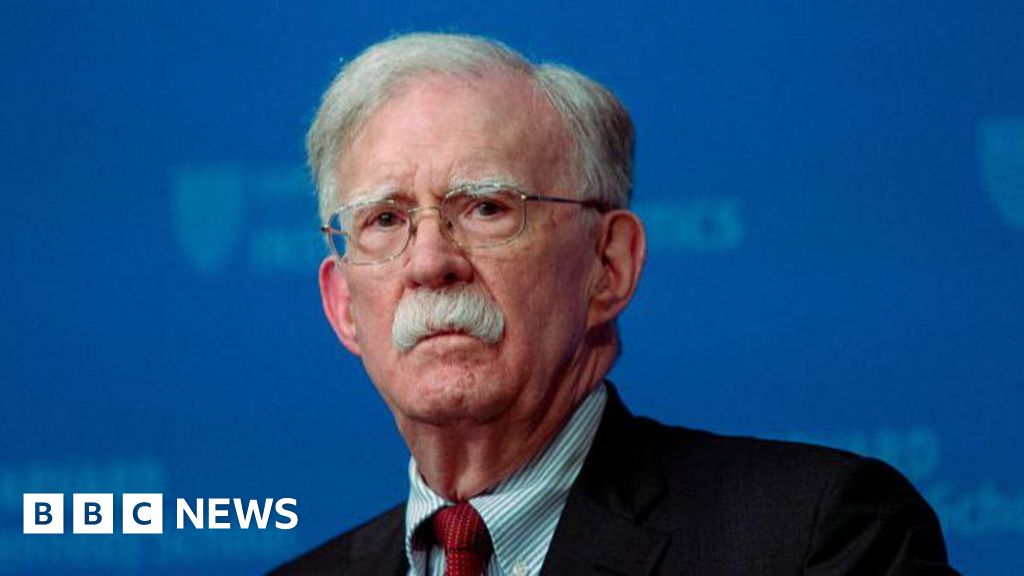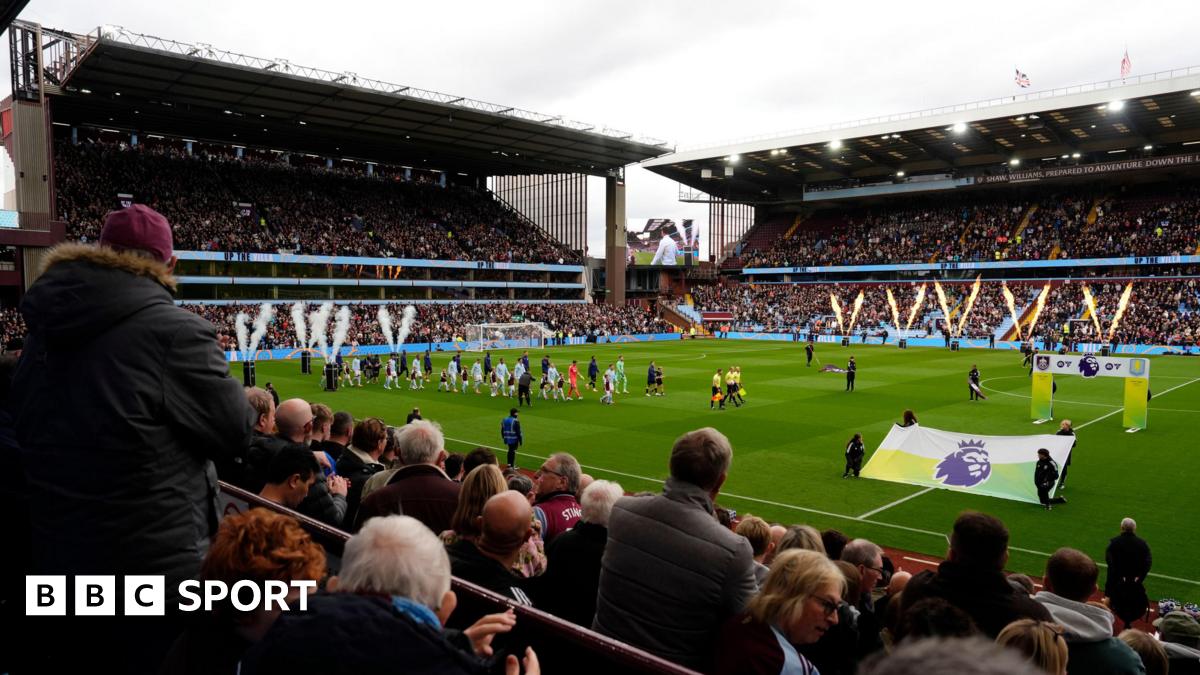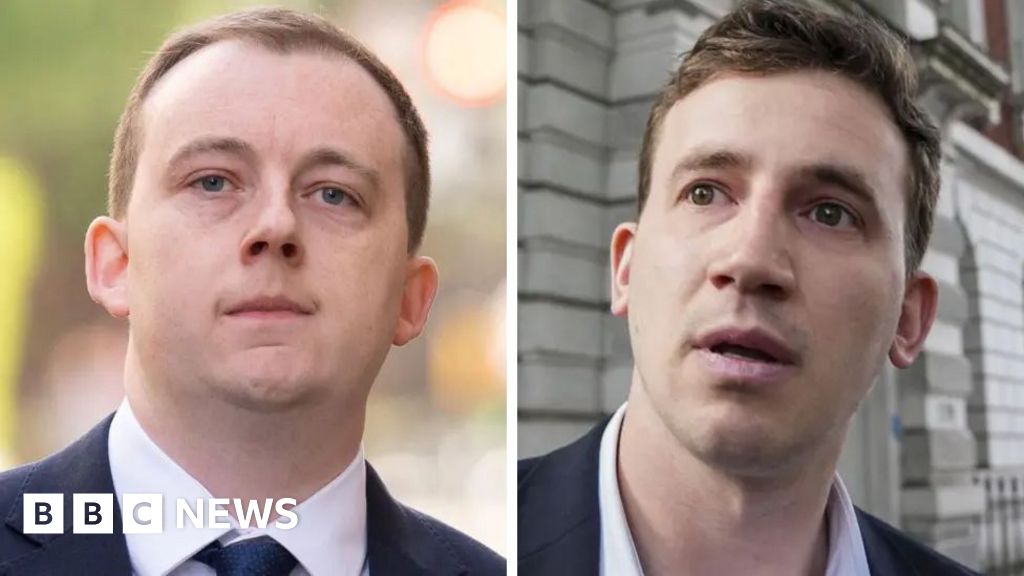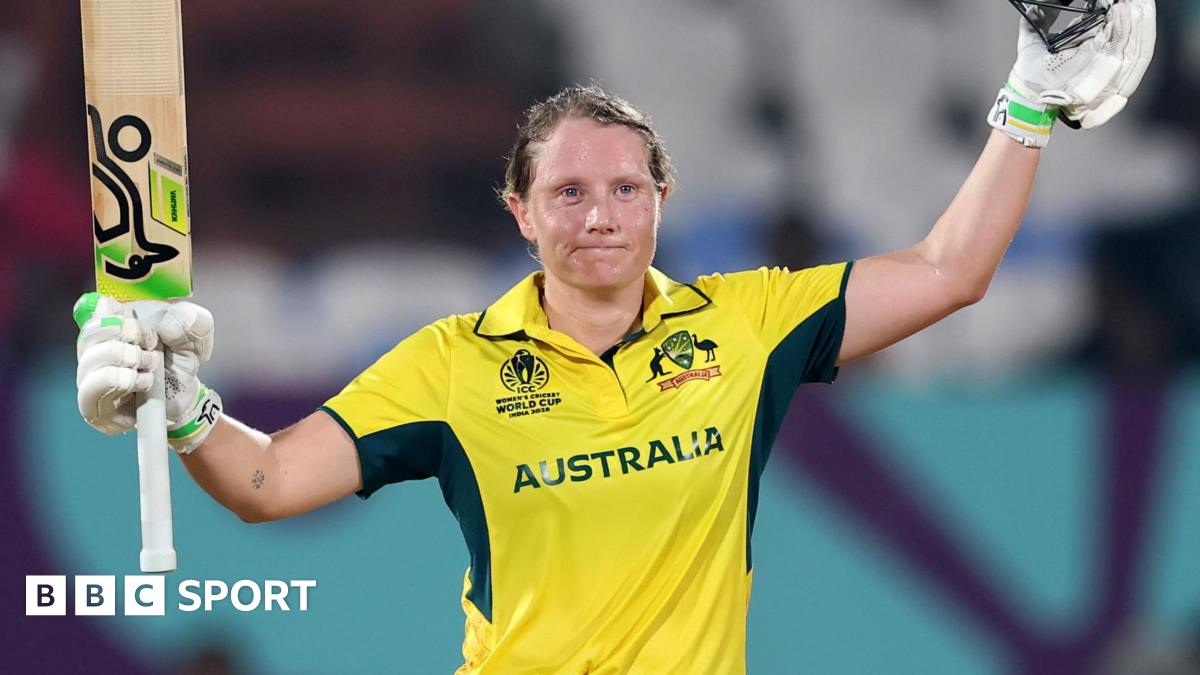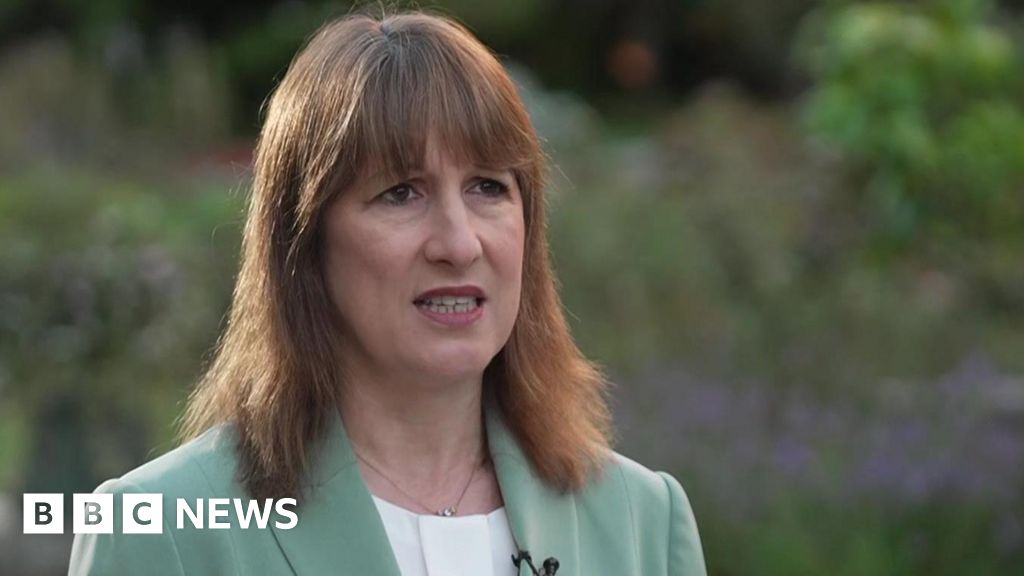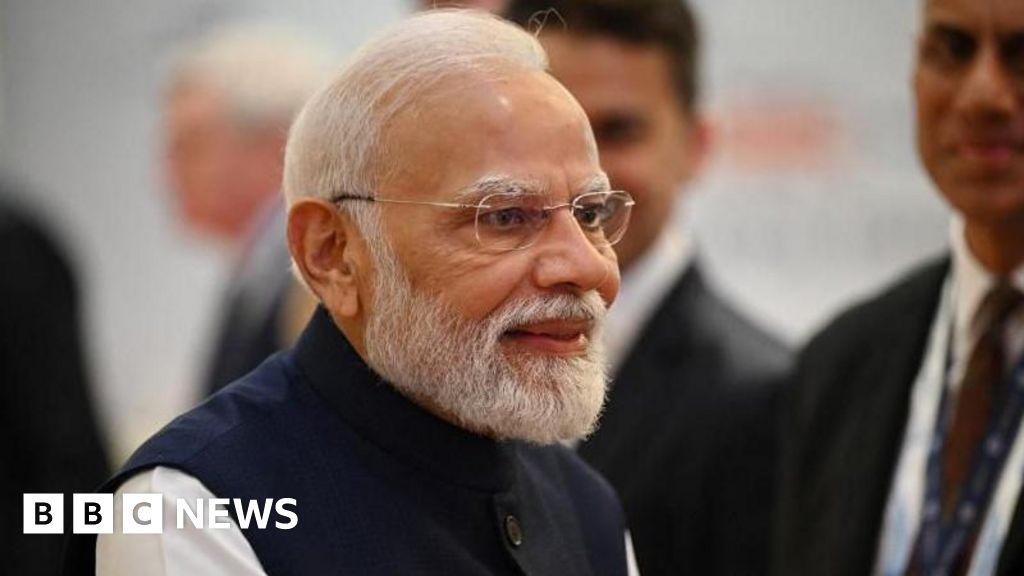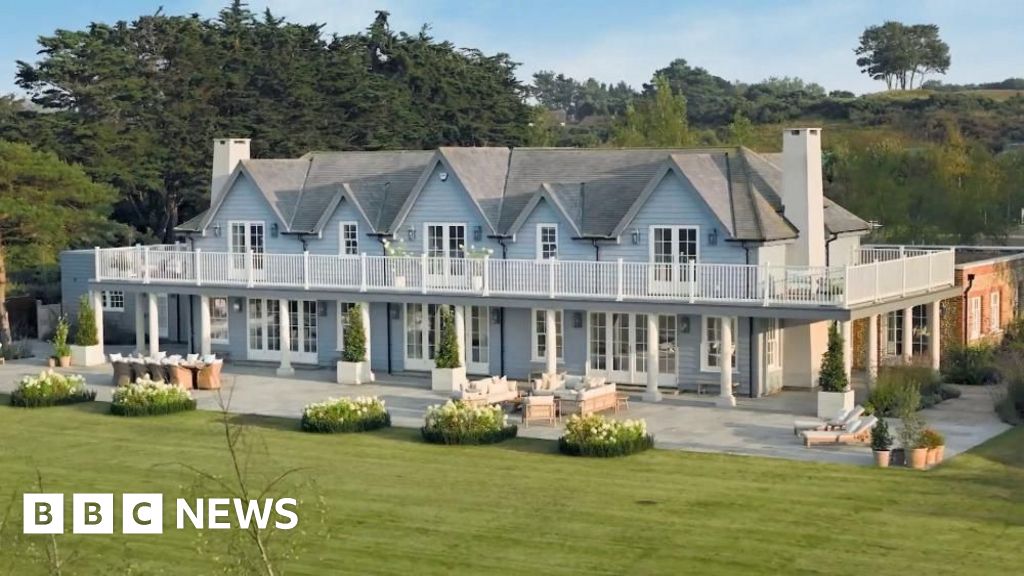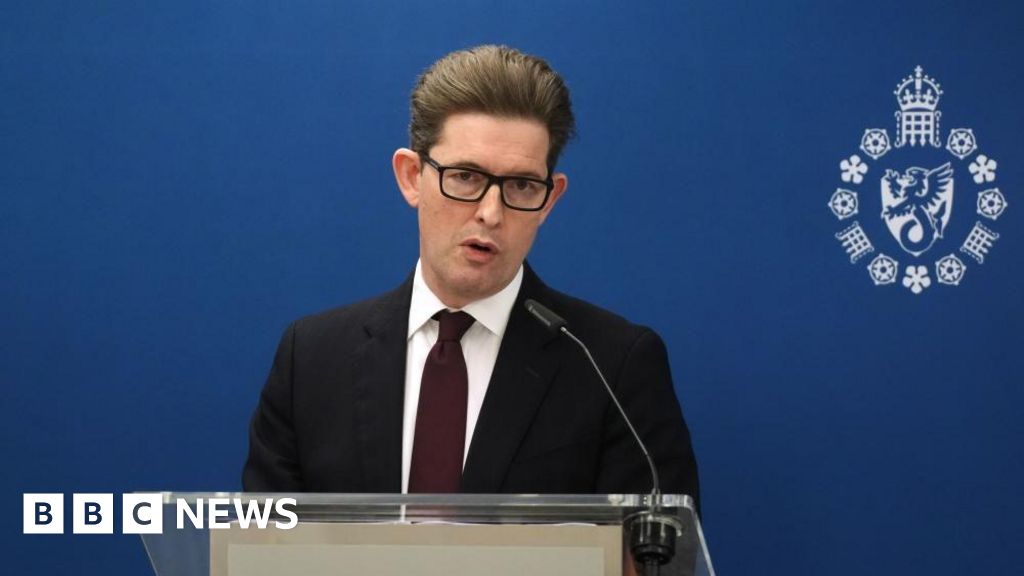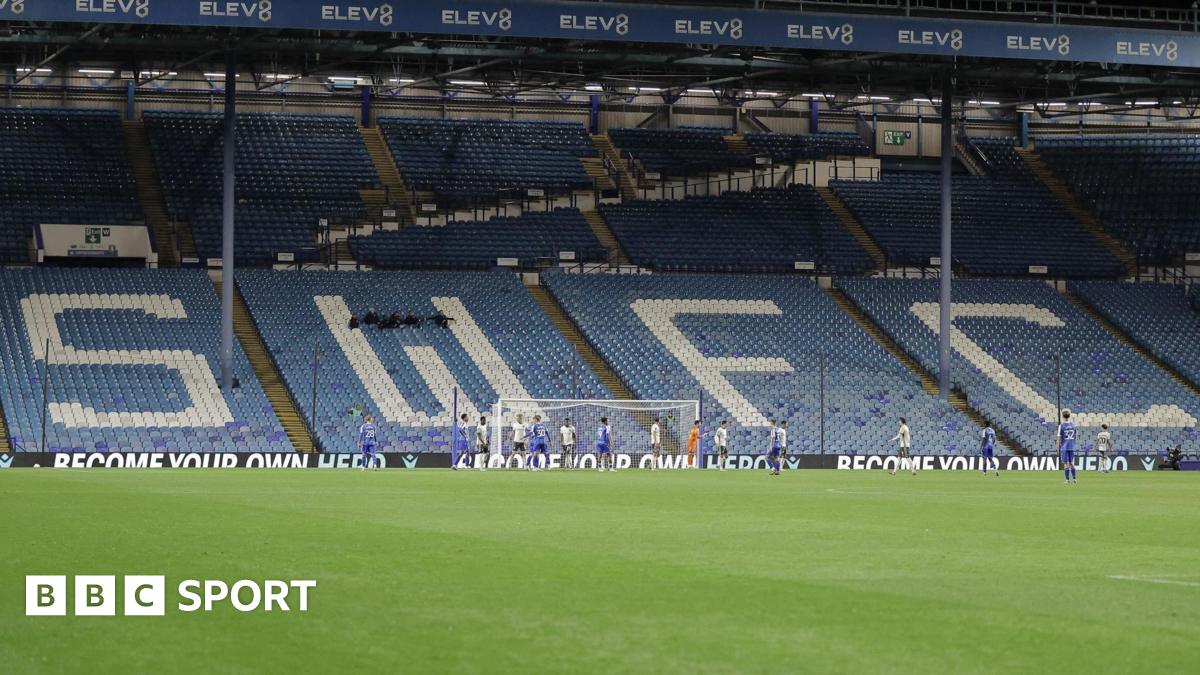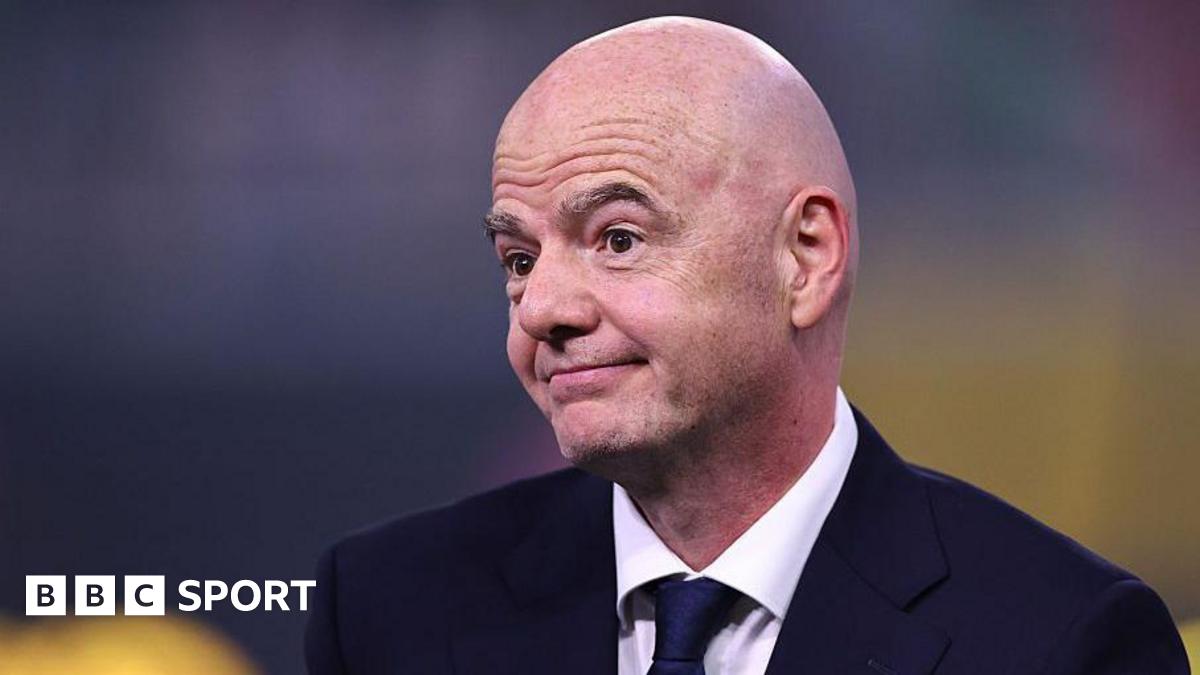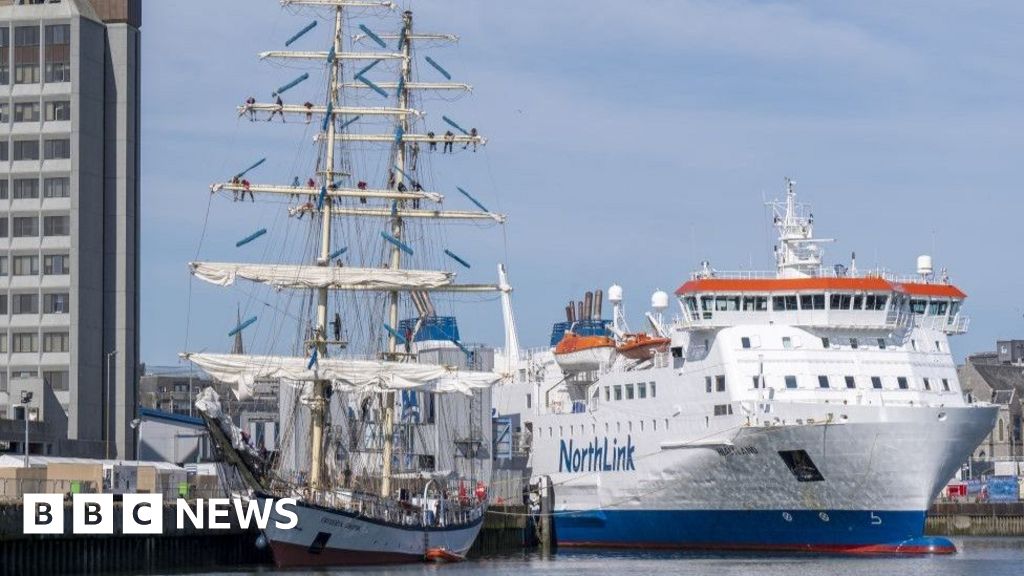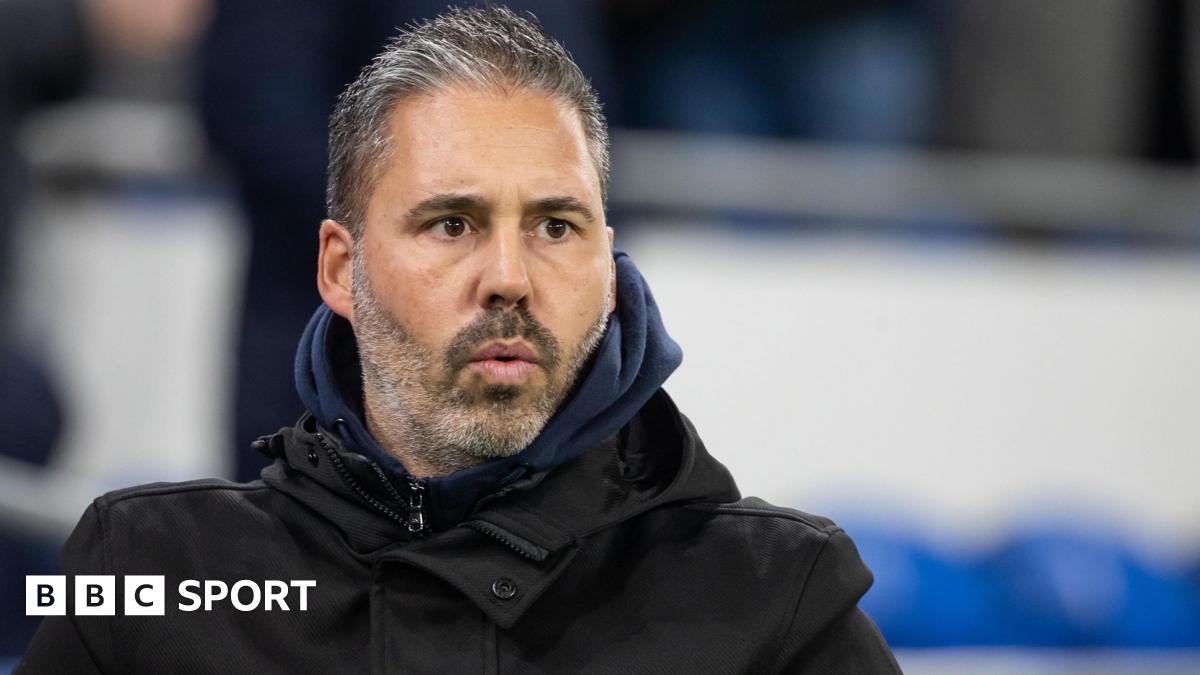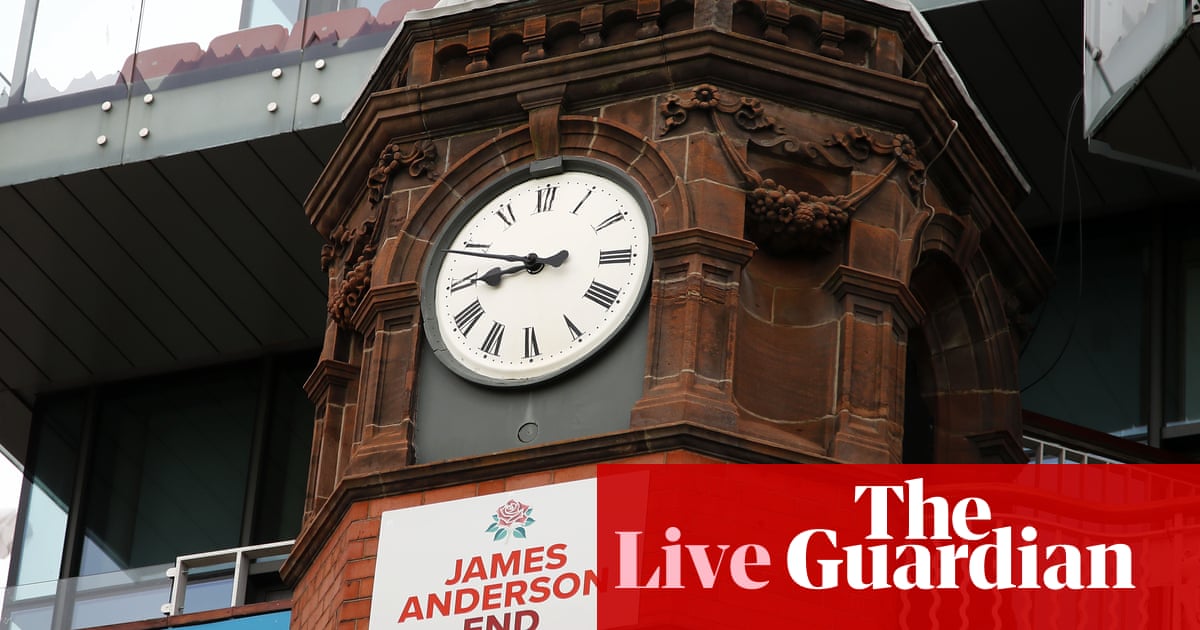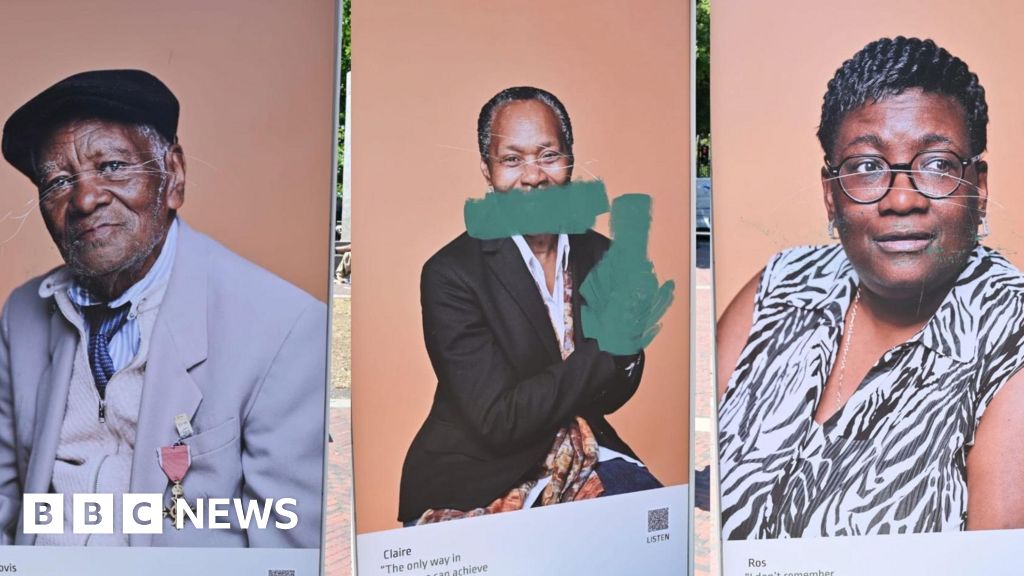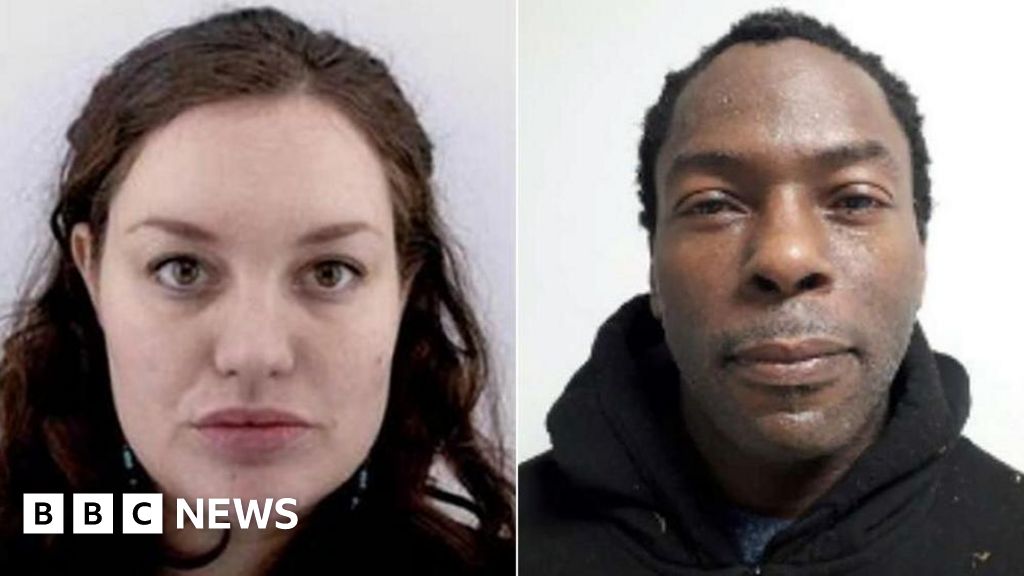
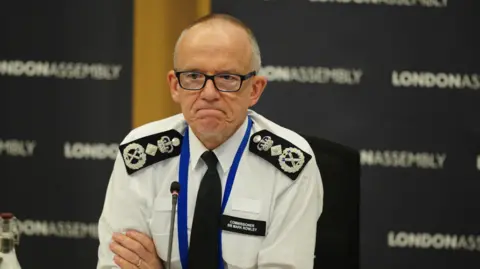 PA Media
PA Media
Sir Mark Rowley says the Met is making progress in "rooting out" unfit officers
Metropolitan Police Commissioner Sir Mark Rowley has pledged to be "ruthless" in getting rid of officers who are unfit to serve.
He made the commitment as he faced questions at the London Assembly on Thursday, following an undercover investigation by the BBC's Panorama programme which found evidence of misogyny, racism and the use of disproportional force at Charing Cross police station.
The commissioner said the behaviour of some of the officers was "vile and shocking" and that the force was undergoing the "biggest clear-out" of rogue officers in its history.
He also defended cost-saving measures that will see all but two 24-hour police station front counters close across London.
Sir Mark told the London Assembly Police and Crime Committee that while the behaviour uncovered in secret recordings at Charing Cross station's detention suite was "vile and shocking", progress was being made in the "biggest clear-out" of rogue officers in the Met's history.
"We have made enormous progress in large part because of the willingness of our officers to come forward," he said. "They've been reporting misconduct at three times the rate."
Sir Mark said the Met had removed more than 1,500 officers and staff since 2022 as part of its drive to raise standards.
Footage shows police disbelieving alleged rape and domestic violence victim
"We're diving deeper with covert tactics to identify these people and root them out," Sir Mark said.
Among the tactics being deployed includes the increased frequency and more "intrusive" vetting procedures into officers' social media.
On the impact of the uncovered behaviour, Sir Mark said: "The thing that concerns me most is when you see that programme is if you're a woman or perhaps a Muslim officer in the organisation, the effect it has on you could be profound.
"If you were making a really difficult personal judgment about whether to report a rape and you saw that programme, that could affect your judgment. I recognise those things."
Gareth Roberts, a Lib Dem assembly member, asked the commissioner whether he would echo London mayor Sir Sadiq Khan in describing the Met as an "institutionally racist", "institutionally sexist" and "institutionally homophobic" organisation.
"It's not language that I'm using," he said. "We have long-term systemic issues that cause bias in the organisation, which effect levels of racism, disproportionality and misogyny and that's what we're tackling."
Mr Roberts also questioned whether the BBC investigation would put victims of sexual assault at Charing Cross station's front counter - only one of two that will remain open 24/7 throughout the capital.
Sir Mark said one example of growing "confidence" from Londoners in the police was the increased rate of reporting by victims of sexual offending.
"We've been making good progress," he added.
The number of front counters where the public can speak to officers will drop from 37 to 27, and be staffed between 10:00 to 22:00 on weekdays and 09:00 to 19:00 on weekends.
Only Lewisham and Charing Cross - where 10 officers are currently under investigation by the police watchdog - will remain open 24 hours.
The commissioner said the cost-cutting measure, which breaks previous pledges made by both the mayor and the force itself, were necessary to help plug a £260m budget shortfall.
Approximately 5% of crime is reported to front counters, which equates to about 50,000 of the one million crimes reported in London annually, the force said. It added the changes would free up about 2,900 hours of police officer time per month.
'Gaping holes in policing'
Some assembly members were critical that the crime reporting figure downplayed the multiple reasons why people may access police counters and accused the force and City Hall of failing to properly consult on the decision.
"The evidence is pretty clear compared to other things that we do, [front counters] don't make the biggest contribution to keeping Londoners safe," Sir Mark said.
"If a pile of extra money fell into our lap from the chancellor, there are lots of other things we'd spend the money on before putting it into front counters that have a bigger effect on London."
The leader of Kensington and Chelsea Council, a borough that will be left with no police station front counters at all, said the decision was "unbelievable".
"This decision will leave gaping holes in front line policing," Elizabeth Campbell said.
.png)
 3 hours ago
2
3 hours ago
2
